Search
Did you mean: Horace?
Search Results

Article
Daily Life in Ancient China
Daily life in ancient China changed through the centuries but reflected the values of the presence of gods and one's ancestors in almost every time period. Villages like Banpo show evidence of a matriarchal society, where there was a priestly...
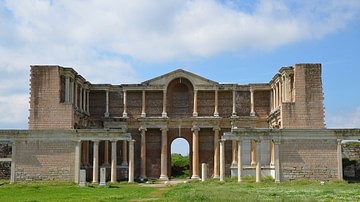
Definition
Sardis
Sardis (near modern-day Sart, Turkey) was the capital of the ancient Kingdom of Lydia founded (according to Herodotus) by the Heracleidae, the Heraclid Dynasty descended from the hero Heracles (Hercules). The city was famous in antiquity...
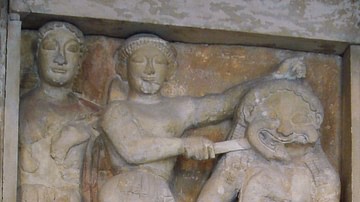
Definition
Perseus
Perseus is one of the greatest and oldest pan-Hellenic heroes of Greek mythology. Perseus famously killed the dreaded Medusa, a Gorgon with snakes as hair and whose stare turned men to stone. Perseus also carried out the daring rescue of...
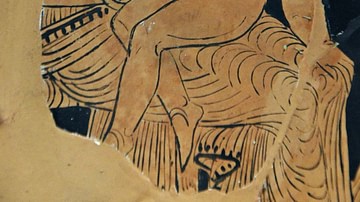
Definition
Pasiphaë
Pasiphaë ("all-shining") is the wife of King Minos of Crete and the mother of the fearsome Minotaur (half-bull, half-man creature) in Greek mythology. She is the daughter of the sun god Helios and Perse, an Oceanid. Like her sister Circe...
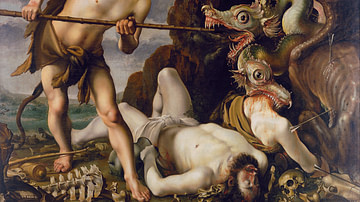
Definition
Cadmus
Cadmus is a Phoenician-born prince and the founder and king of Thebes in Boeotia in Greek mythology. He travelled to Greece from his home in Tyre in search of his sister Europa who had been kidnapped by Zeus. His rescue mission was abandoned...
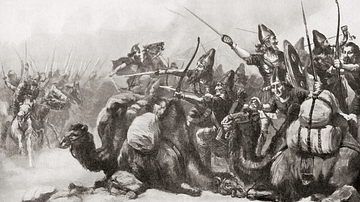
Definition
Battle of Thymbra
The Battle of Thymbra (547 BCE) was the decisive engagement between Cyrus II (the Great, r. c. 550-530 BCE) of Persia and Croesus (r. 560-546 BCE), King of Lydia. The Persian victory ended the Kingdom of Lydia, which was then absorbed into...
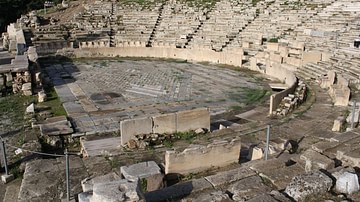
Definition
Plutus (Play)
Plutus (aka Wealth) is a play written by the great Greek comedy playwright Aristophanes in 388 BCE. It was the last of his plays to be performed during his lifetime. Like his earlier play Ecclesiazusae (The Assemblywomen), Wealth was written...
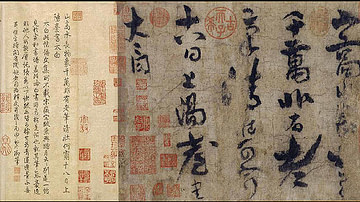
Collection
History of Chinese Literature
Ancient Chinese literature developed following the evolution of script which evolved from divination practices of the Shang Dynasty (1600-1046 BCE). The pictographs made on oracle bones by diviners became the script known as Jiaguwen (c...

Definition
Ancient China
Ancient China produced what has become the oldest extant culture in the world. The name 'China' comes from the Sanskrit Cina (derived from the name of the Chinese Qin Dynasty, pronounced 'Chin') which was translated as 'Cin' by the Persians...
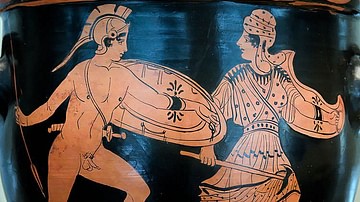
Article
A Visual Who's Who of Greek Mythology
Achilles The hero of the Trojan War, leader of the Myrmidons, slayer of Hector and Greece's greatest warrior, who sadly came unstuck when Paris sent a flying arrow guided by Apollo, which caught him in his only weak spot, his heel. Adonis...